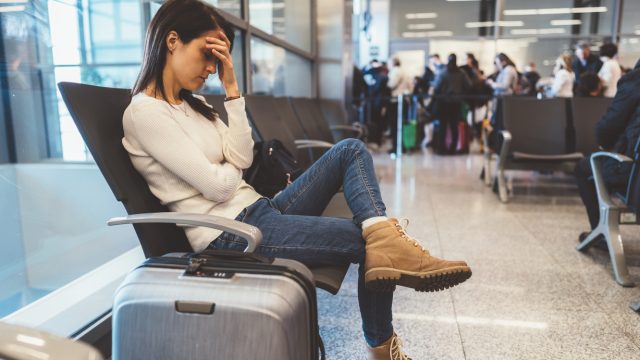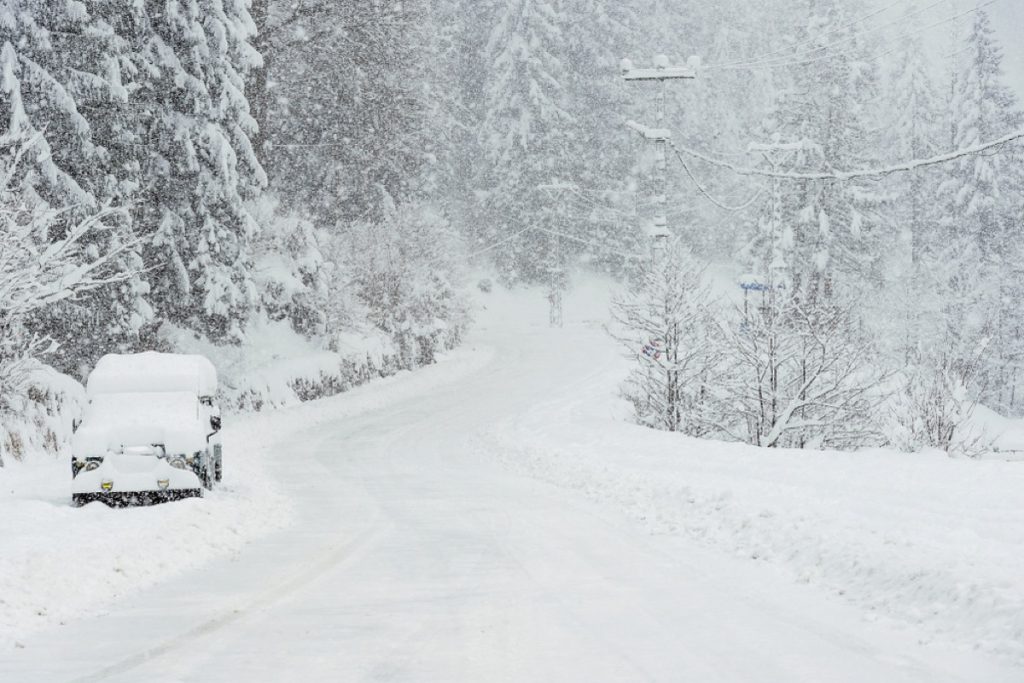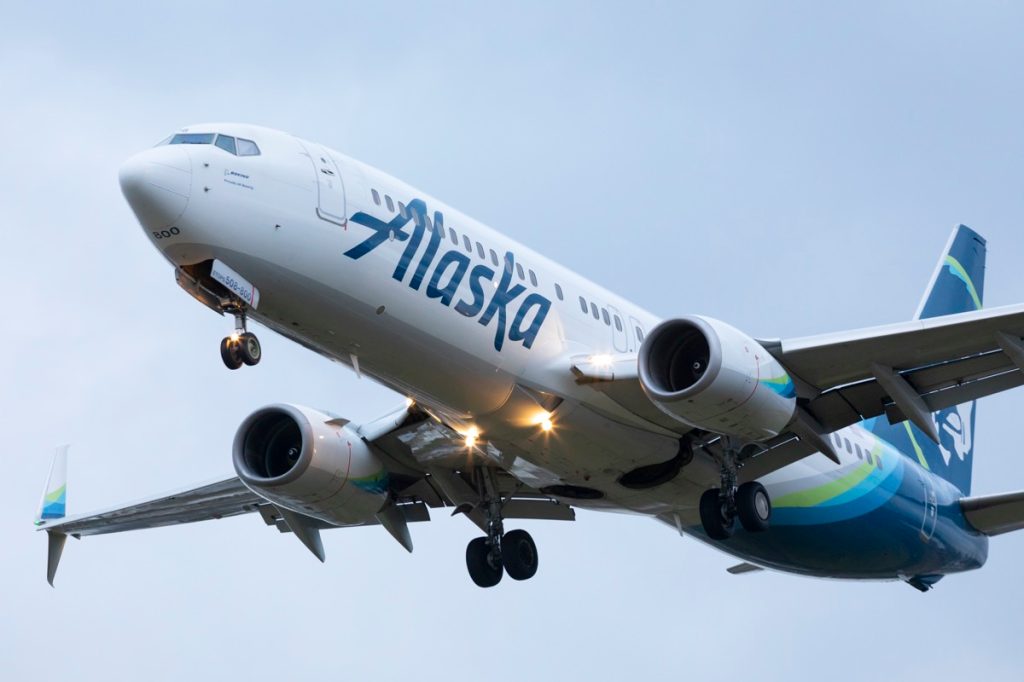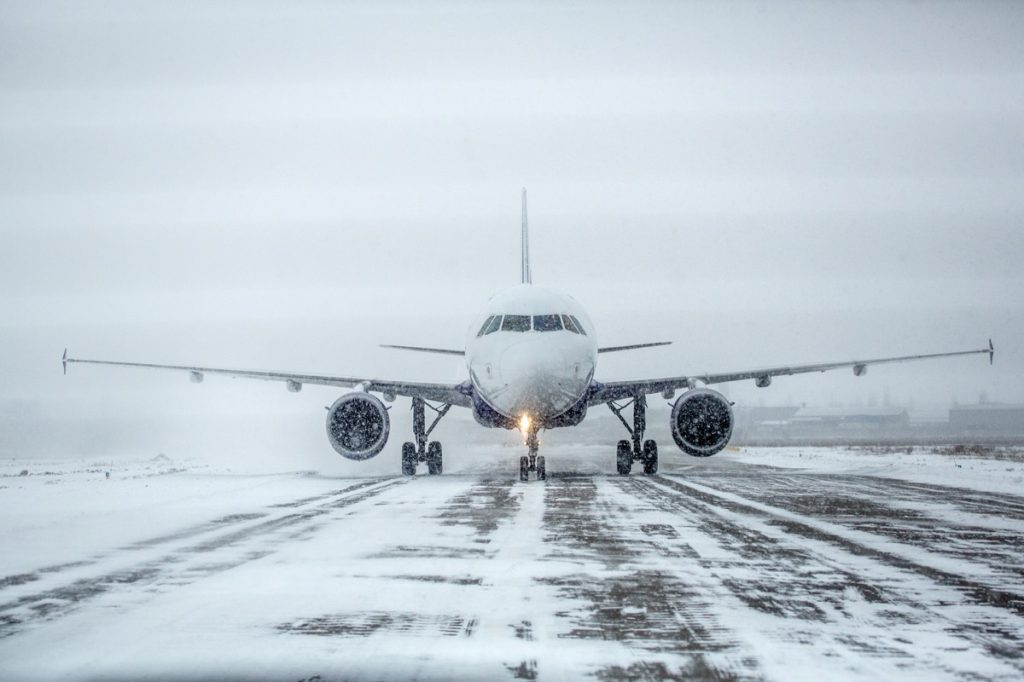Major Airlines Including Delta and Alaska Are Canceling Hundreds of Flights

Celebrating the holidays can be one of the year’s highlights as we crisscross the country to spend time with family and loved ones. But when things start to go wrong, what’s meant to be the most wonderful time of the year can quickly devolve into a travel nightmare. Flying can be particularly sensitive to any interruptions, with most carriers usually anticipating larger crowds and busier airports. However, major airlines—including Delta and Alaska—are announcing that they’re already canceling hundreds of flights in the lead-up to the holiday weekend. Read on to see how these travel changes might affect your plans.
READ THIS NEXT: Southwest Is Finally Changing the Way It Boards Flights.
A major storm is forecast to hit the U.S. during busy holiday travel days.

From shopping requirements to hosting duties, the holiday season already has plenty of its own annual stresses built into it. But each season can also feel like a game of roulette with the elements as anyone hitting the road or taking to the skies hopes for a clear forecast. Unfortunately, it appears as though this year might complicate travel arrangements for vast swaths of the U.S.
The National Weather Service is forecasting a major winter storm that is expected to pass from coast to coast and will affect central and northern regions beginning Dec. 20 and heading into the weekend as it moves east, Bloomberg reports. Major cities such as Chicago could see blizzard conditions bringing as much as eight inches of snow amid 55-per-hour winds. Freezing temperatures are also expected to spread as far south as Alabama and the Gulf Coast.
“It’s going to be a pretty impactful storm coming across a huge part of the country,” Bob Oravec, a senior branch forecaster for the U.S. Weather Prediction Center, told Bloomberg.
The severe weather also stands to cause travel chaos, especially in some of the nation’s busiest airport hubs. And now, some carriers are trying to get ahead of the curve by changing their schedules.
Airlines such as Alaska and Delta are already canceling hundreds of flights.

As severe weather begins to make its way across the U.S., one of the busiest travel weeks of the year is already feeling the effects.
On Dec. 19, Alaska Airlines announced that it had pre-canceled about 100 flights for the following day at Seattle-Tacoma International Airport, local ABC affiliate KOMO reports. But as snow, wind, and freezing temperatures hit the northwest, carriers are grounding more planes. As of the early morning hours on Dec. 20, there have been 191 flights canceled at the airport and 40 delays, according to FlightAware.
Besides Alaska, Delta has also been forced to change its schedule, with 47 departures—or 26 percent of its flights from the airport for the day—so far canceled, and 10 more delayed on Dec. 20, according to FlightAware. Skywest, Delta’s regional subsidiary airline, also posted 37 cancelations and one delay at the same time.
RELATED: For more up-to-date information, sign up for our daily newsletter.
Alaska Airlines is especially vulnerable to bad weather conditions in Seattle.

As it takes the earliest brunt of the expected severe weather, inclement conditions in Seattle can also snarl flight schedules for Alaska Airlines specifically as it’s forced to slow departures and connections through its main hub. In a blog post, the company said that the disruptions could have an outsized effect on travel in the coming days.
“Seattle is Alaska’s hometown, and our operations represent the largest percentage (by a wide margin) of departures and arrivals at Seattle-Tacoma International Airport (SEA) compared to other airlines. Because of this, more of our guests are impacted when something impacts operations at Seattle,” the airline wrote. “For context, SEA has a very small footprint by acreage compared to other metropolitan airports. This constrains our ability to deice our entire schedule of flights in wintry weather. Because the space doesn’t allow for that type of volume, we have to thin out our schedule to keep planes moving.”
However, the carrier also explained why it was already canceling flights ahead of the storm. “When our forecasts tell us to expect snow or ice, we know we need to act,” the company wrote. “Freezing temperatures and precipitation mean that we need to deice our aircraft before they can safely fly. Much like putting chains or studded tires on your car before hitting a snowy road, deicing aircraft slows down our operation. This means we can’t move our normal number of aircraft into and out of the airport. In order to reduce traffic jams, we need to proactively cancel flights from our schedule so we can keep as many aircraft moving as possible.”
“If we need to cancel flights, we try and let impacted guests know as early as possible. This means it could look clear and beautiful outside, but your flight tomorrow may have been canceled,” the company explained.
The airline is urging passengers to plan ahead and be prepared for any sudden changes.

For now, Alaska is encouraging passengers to prepare themselves for any possible last-minute changes to their schedule. The airline suggests downloading its mobile app so they can check on flight status and get updates quickly—especially before heading to the airport. The company also advises giving yourself a little more time than usual to get through security and the airport. The carrier says that anyone traveling on a flight that gets canceled will be contacted and placed on another flight.
But Alaska isn’t the only airline anticipating significant issues in the week ahead. Delta has already issued travel waivers for passengers affected by the storm in Seattle and Portland, Oregon, from Dec. 20 through Dec. 22. And United Airlines has issued its own waiver for dozens of airports throughout the Midwest, Northeast, and Midatlantic, including Chicago, New York City, Washington, D.C., Boston, and Toronto for original travel dates scheduled from Dec. 22 through Dec. 25.